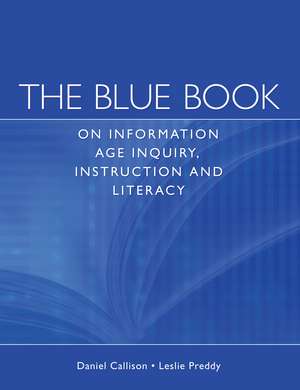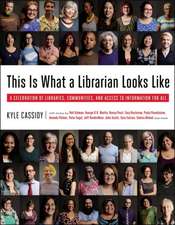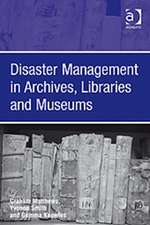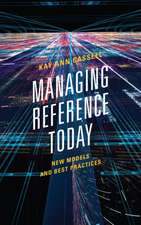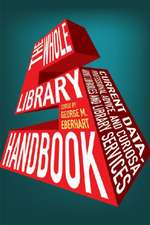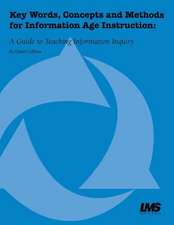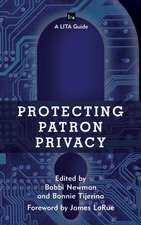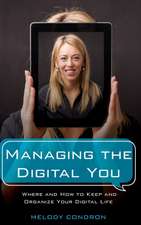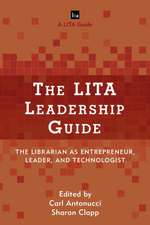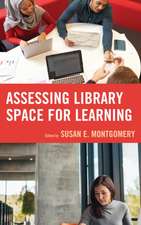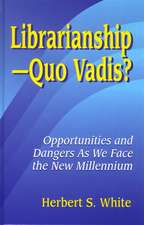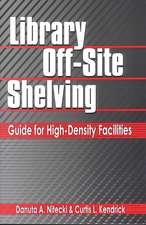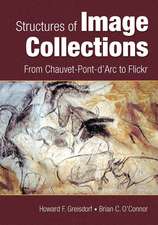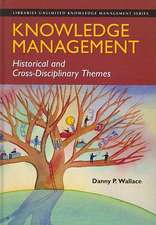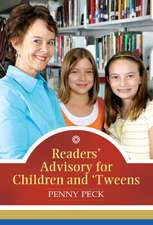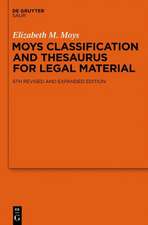The Blue Book on Information Age Inquiry, Instruction and Literacy
Autor Daniel Callison, Leslie B. Preddyen Limba Engleză Paperback – 29 sep 2006 – vârsta până la 17 ani
Preț: 293.46 lei
Preț vechi: 354.99 lei
-17% Nou
Puncte Express: 440
Preț estimativ în valută:
56.15€ • 58.79$ • 46.46£
56.15€ • 58.79$ • 46.46£
Carte tipărită la comandă
Livrare economică 07-21 aprilie
Preluare comenzi: 021 569.72.76
Specificații
ISBN-13: 9781591583257
ISBN-10: 159158325X
Pagini: 660
Dimensiuni: 216 x 279 x 41 mm
Greutate: 1.81 kg
Ediția:New.
Editura: Bloomsbury Publishing
Colecția Libraries Unlimited
Locul publicării:New York, United States
ISBN-10: 159158325X
Pagini: 660
Dimensiuni: 216 x 279 x 41 mm
Greutate: 1.81 kg
Ediția:New.
Editura: Bloomsbury Publishing
Colecția Libraries Unlimited
Locul publicării:New York, United States
Notă biografică
Daniel Callison is a professor at Indiana University.Leslie Preddy has been a library media specialist since 1992. She is a recipient of the Lilly Teacher Creativity Fellowship, American Association of School Librarian's Collaborative School Library Media Award, Indiana Library Federation-Association for Indiana Media Educators Peggy L. Pfeiffer Service Award and is a past General Chair of the Indiana Young Hoosier Book Award Program and past president of the Association for Indiana Media Educators. She has published articles for School Library Media Activities Monthly, Knowledge Quest on the Web, and Indiana Principal's Leadership Academy.
Cuprins
ContentsSection I: Introduction to ConceptsChapter 1 Information Inquiry: Concepts and ElementsChapter 2 Key Foundational Documents for Information Literacy and InquiryChapter 3 Information Search and Use ModelsChapter 4 Models for Information InquiryChapter 5 Information Literacy, Media LiteracyChapter 6 Standards, Scope & SequenceChapter 7 Instructional ModelsChapter 8 Foundations of Library Media Specialist'sChapter 9 The Instructional Media SpecialistChapter 10 Student as Information ScientistChapter 11 Online Inquiry LearningChapter 12 Learning Resources ManagementSection II: Application of InquiryChapter 13 MS Inquiry BasicsChapter 14 MS Inquiry OrientationChapter 15 MS Inquiry ExplorationChapter 16 MS Inquiry InvestigationChapter 17 MS ConclusionSection III: Key WordsAppendix ChartsAppendix Key Word Annotated BibliographyBibliography on Information LiteracyWeb Site BibliographyAssessment RubricIndex
Recenzii
[A] one stop sourcebook designed to serve as a theoretical model for designing and implementing a K-12 information literacy program..Daniel Callison and Leslie Preddy have created an excellent resource for K-12 library media specialists, but colleges and universities will also find it extremely useful. Its greatest strength is the thoroughness with which this subject is covered, and even those who have been teaching information literacy for many years will find new ideas and resources here.
If we believe that information literacy is a lifelong, collaborative, problem-solving process, then it is essential that, at some point in our work with each student, we assess their ability to apply knowledge in the context of real tasks.in authentic projects. For guidance, we can turn to The Blue Book on Information Age Inquiry, Instruction and Literacy where evaluations and assessments suited to complex performances typical of inquiry learning are identified.
Starred Review Finally we have a volume that explains in detail what school library media specialists and teacher-librarian types do! Although intended as a manuscript for classroom study, this title is a perfect tool for the validity of a great school library program..This volume is for all librarians/teachers and their principals, colleagues, and school committee members. This is a great compendium of idea stimulators as well as explanations of our methods. Next time someone asks, What do you teach in library? just hand them this title. Highly Recommended.
This book is by far the most comprehensive collection of articles, ideas, models, and other resources on inquiry and information literacy. It may seem overwhelming because of its 660 pages, but it is the foundation of a central component of the school library program.
A revision and update of Key Words, Concepts and Methods for Information Age Instruction (2003), this text boasts a new section on inquiry, new key words for instruction, and updated lists of print and Internet sources. Part 1 introduces the concepts of information inquiry, providing foundational documents and exploring search and use models, information literacy, standards, the instructional role of library media specialists, online inquiry learning, and resource management. Part 2 offers concrete examples of inquiry applied to the middle school student research process, and supplies reproducible pages for classroom use. Part 3 discusses and defines 51 key terms. Entries here are several pages in length and include citations and references. Indispensable for all school media specialists, this book will also appeal to other readers, who will be impressed by its well-organized design, thoroughness, and practicality.
If we believe that information literacy is a lifelong, collaborative, problem-solving process, then it is essential that, at some point in our work with each student, we assess their ability to apply knowledge in the context of real tasks.in authentic projects. For guidance, we can turn to The Blue Book on Information Age Inquiry, Instruction and Literacy where evaluations and assessments suited to complex performances typical of inquiry learning are identified.
Starred Review Finally we have a volume that explains in detail what school library media specialists and teacher-librarian types do! Although intended as a manuscript for classroom study, this title is a perfect tool for the validity of a great school library program..This volume is for all librarians/teachers and their principals, colleagues, and school committee members. This is a great compendium of idea stimulators as well as explanations of our methods. Next time someone asks, What do you teach in library? just hand them this title. Highly Recommended.
This book is by far the most comprehensive collection of articles, ideas, models, and other resources on inquiry and information literacy. It may seem overwhelming because of its 660 pages, but it is the foundation of a central component of the school library program.
A revision and update of Key Words, Concepts and Methods for Information Age Instruction (2003), this text boasts a new section on inquiry, new key words for instruction, and updated lists of print and Internet sources. Part 1 introduces the concepts of information inquiry, providing foundational documents and exploring search and use models, information literacy, standards, the instructional role of library media specialists, online inquiry learning, and resource management. Part 2 offers concrete examples of inquiry applied to the middle school student research process, and supplies reproducible pages for classroom use. Part 3 discusses and defines 51 key terms. Entries here are several pages in length and include citations and references. Indispensable for all school media specialists, this book will also appeal to other readers, who will be impressed by its well-organized design, thoroughness, and practicality.
